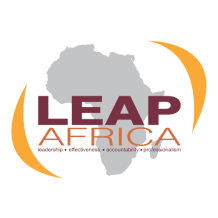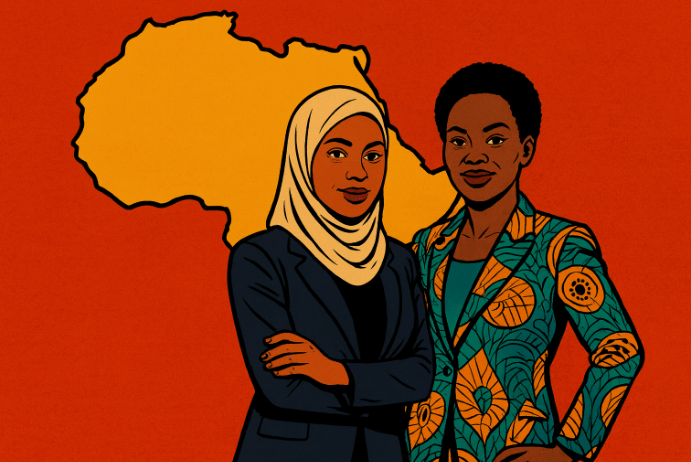Introduction
Period poverty, simply put, occurs when someone cannot afford proper menstrual products or lacks adequate access to hygiene facilities, waste management or sexual reproductive health education. Period poverty is an extension of widespread poverty in Nigeria with over 40% of people living in poverty which is about 90 million people2.
Furthermore, there is global evidence of lack of adequate guidance, facilities, and materials for girls to manage their menstruation in school. In Nigeria, especially among secondary school girls and women, there is a ‘culture of silence’ and shame regarding issues of sexuality and menstruation that are attributed to cultural restrictions. These neglected public health, social and educational issues require prioritization, coordination and investment.3
This article raises awareness on the effect of period poverty on secondary school girls in Nigeria and makes a case for the need for sustainable sanitary products to curb this challenge. The recommendations put forward is geared towards improving future outcomes for young girls in secondary schools.
Menstrual Cycle: A blessing or a curse?
To most girls, puberty has been an affirming period in their lives as they witness some obvious changes in their bodies that gets them excited. For others, the onset of their period is characterized by challenges that can have far reaching consequences on the girl’s wellbeing, dignity, and reproductive health.
Some of these challenges which include fear, shame, teasing and embarrassment fuels the desire to keep menstrual status hidden.4 Other challenges included some of the girls’ inability to manage menstruation properly which may cause leaks and stains. There is also poor ability to manage physical
Period Poverty Among Secondary School Girls by Pamela Uzoma effects like cramps, headaches and nausea during menstruation. These have made attending school during menstruation more difficult than attending school on other days for girls.
A 2015 UNICEF survey revealed that most school toilets in Nigeria are untidy with only 25% having clean water, soap and sinks5. Further research has shown that girls’ capacity to manage their periods in school is affected by lack of access to affordable hygienic sanitary materials disposal options for used materials, hand washing facilities and access to changing rooms. If these facilities are not always available in school, it exposes many girls to manage their periods with great discomfort and in unhygienic conditions.6
Some factors affect how menstruation affects young girls; these include economic status, religious or cultural beliefs among others:
• The economic status of an individual can positively influence their standard of living. A girl who comes from a wealthy background is more likely to go to a secondary school with adequate facilities. She is also more likely to afford basic menstrual products that could ease her period days. However, girls with from lower income family would most likely attend a public school without adequate sanitary facilities. For a more practical example, a survey was taken from 12 secondary schools in urban and rural areas in three geo-political zones in Nigeria: the north (Katsina); southeast (Anambra) and southwest (Osun) revealed that although various challenge had contributed to period poverty, it was more obvious in the rural schools7.
• Cultural/Religious beliefs: Menstruation is often associated with shame and fear as menstruating girls are socially isolated during their periods. This stereotype mostly perpetuated by family members have cultural and religious backings that contributes to period poverty. These girls are left with little or no knowledge on how to manage their menstruation without social isolation. With this, they are conditioned to seek solitude, often missing schools.
Effects of Period Poverty
Some of the effects of period poverty on girls can be categorized into physical and psychosocial effects. The physical effects include:
❖ Poor concentration /Distraction: Poor management of periods are likely to result in physical challenges in menstruating girls. More often during their periods, these girls with inadequate menstrual health management barely concentrate in class due to abdominal cramps, other physical symptoms, and the anxiety that they might be stained. This leads to distraction and reduced attention during class and exclusion from school activities.
❖ Poor school attendance (Missing classes /Absenteeism): Menstruating girls sometimes skip classes due to the challenges they face. They sometimes miss classes when they are looking for places to change their sanitary wears or due to the physical discomfort. Sometimes, they are sent home or to the clinic to seek treatment. This may be detrimental to a girls’ education
as might be unable to catch up if she misses exceptional learning moments frequently. ❖ School dropout: In some parts of northern Nigeria, stopping a girl’s formal education could e as a result of menstruation. Menstruation signifies the maturity of girls and ability to marry
Period Poverty Among Secondary School Girls by Pamela Uzoma thereby leading girls to stop attending school to get married. This often led to high number of drop out from school by girls.
❖ Psychosocial effects: They include fear, shame and embarrassment of unexpected menstruation stains and leaks, teasing by boys etc. These challenges are detrimental to the mental health of the girl student as negative impact include depression, cognitive dissonance, poor body image, low self esteem among other mental health challenges.
Way Forward
A major cause of period poverty is the high cost of menstrual products. On average, a regular menstrual flow last for about five days and would need about three pads a day, a packet of 10 sanitary pads costs between N400 and N2,000, and these girls might need more than a packet for a month depending on the menstrual flow. To put this in perspective, girls in secondary schools will spend approximately N100,000 on sanitary pads in six years, which is N16,800 per year and N1400 every month.
For some activists, it was certain that a subsidy on sanitary products would drive down these prices, but this was not the case. In 2020, President Muhammadu Buhari signed a 7.5% value added tax-free policy on locally made sanitary pads in Nigeria.8 However, this has made little or no impact to end period poverty.
More than ever, the call for sustainability in the ecosystem can never be over-emphasized. Menstrual products should be sustainable products. The planet is filled with enough plastic that reusable environmentally friendly menstrual products need to be explored. Some sustainable menstruation products include menstrual cup which is usually made of silicone and can last up to 12 years. Another one is reusable Pads which are thin and flexible but can absorb more than a regular disposable pad. They are considered safe and easy to use9.
There is also a need for intersectoral collaboration to ensure access to water and sanitation. Over the years, United Nations Children’s Fund (UNICEF) has been a key ally of the Nigerian government in the provision of water, sanitation and hygiene improvement both at the community level for household use and in schools for the benefit of school children. Some Non-government Organizations (NGOs) have been involved in many projects that are designed to increase sustainable access to and use of improved water sources, sanitation facilities and products, and hygiene education with particular attention to secondary school girls. An example is LEAP Africa through its iLEAD programme targeted at underserved youth in public secondary schools.
1 https://punchng.com/menstruation-forces-80-of-girls-out-of-school-report/
2 Nigeria: poverty rate, by state 2019 | Statista
4 https://www.ncbi.nlm.nih.gov/pmc/articles/PMC8568214/
https://www.premiumtimesng.com/health/health-news/331979-period-poverty-how-menstruation-makes-nigerian-girls miss-school.html
6 https://www.unicef.org/nigeria/reports/assessment-menstrual-hygiene-management-secondary-schools 7Ibid. 3
8Finance act 2019: 20 Basic Food Items, Sanitary Pads, Others make list of VAT Exemption list – The Statehouse, Abuja 9 https://greatist.com/health/eco-friendly-period-products-sustainable-period-products
https://www.unicef.org/nigeria/media/1256/file/Assessment-menstrual-hygiene-management-in-secondary-schools 2.jpg.pdf



